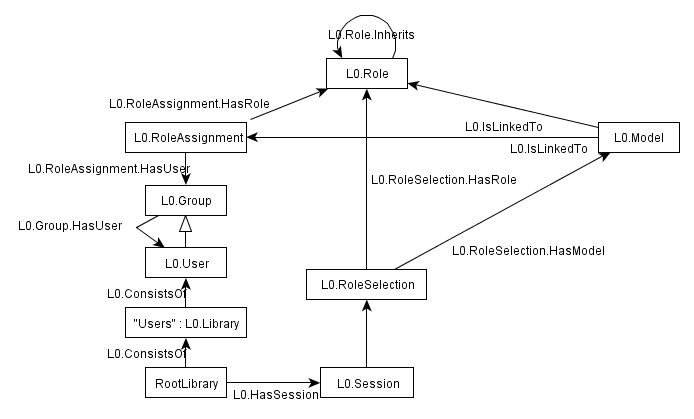Difference between revisions of "Users and Roles"
Jump to navigation
Jump to search
| Line 16: | Line 16: | ||
A user always assumes a single role in the user interface. Various user interface rules can be attached into roles e.g. to allow or disallow certain operations. The user interface can also use the user and role information for selecting which data to show. | A user always assumes a single role in the user interface. Various user interface rules can be attached into roles e.g. to allow or disallow certain operations. The user interface can also use the user and role information for selecting which data to show. | ||
| + | |||
| + | == Modelling == | ||
| + | |||
| + | [[Image:UsersAndRoles.png]] | ||
[[Category: Model Development]] | [[Category: Model Development]] | ||
Revision as of 11:51, 11 July 2011
User and role modelling in the semantic database is supported to enable user and use case specific user interface logic.
Basic concepts
User account
User accounts are needed in authentication of Simantics services such as database connections and experiment servers. User authentication in Simantics is based on LDAP?
User model
A user model is a representation of a user account in the Simantics database.
Role
A user always assumes a single role in the user interface. Various user interface rules can be attached into roles e.g. to allow or disallow certain operations. The user interface can also use the user and role information for selecting which data to show.
